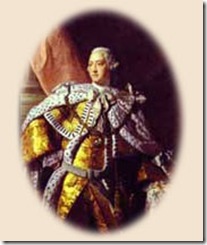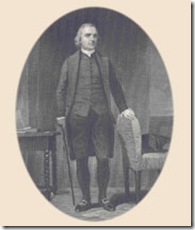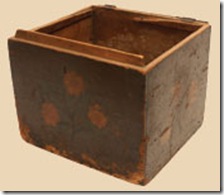An express train, carrying life’s precious cargo of; “Time” rattled through , only stopping at a few mainline stations. I’ve managed to be home (not quite, but still in the US) for a fortnight. Between 3 days in Boston and this weekend (Mothers day and Claudia’s birthday) we (the family) have been busy.
New Side-Yard gates and the vegetable garden goes lawn



Sunday; a party-BBQ at our place, (new deck gets its grand opening) with: Robin & Claudia, Ben & Ashley, Frank and Hannah, Trevor and Maria, Robbie and me ..
with: Robin & Claudia, Ben & Ashley, Frank and Hannah, Trevor and Maria, Robbie and me ..
Ben looking cool:

As the sun disappeared into the evening sky, we set up for tea inside. With a plethora of “Fine / Excellent teas on offer, Taiwan Oolong, Fujian TGY, Yunnan Pu-Erh and a few others, a surprise emerged.
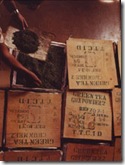
A little back story, Robin ,my pal, is English actually and likes his “Tea Bags” PG Tips.

Friends don’t let friends drink “tea-bag” tea, its just not cricket. Robbie (wife) picked up a tin of:

English Breakfast tea, a blend of Kenyan & Assam black teas. Surprise, surprise. Not a bad cup of Rosie Lee.
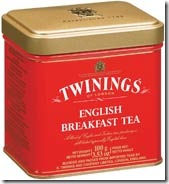
I have sampled and drank any number of fine “premium” Indian teas, and find that this tea blend to be: very acceptable. One comment on preparation: make it strong and use cream (Half & Half). Think of it as “comfort tea”
Also when on the subject of Brits and tea:
The phrase "Tea for Two" didn't originate with the 1925 song of the same name. Tea for two originally was called out in the marketplace...it was an offer of tea for two pence — not for two people.

In 1894, the first Lyons Tea Shoppe opened at Piccadilly Circle in London and made a name by offering a pot of tea for two pence, or a "tuppence" coin, aka a “tupeny-bit” or Half-Groat. Somehow “Tea for a Half-Groat or Two teas for a Groat”, fails to capture the imagination.
More from the world of books
A few months back I picked some tea books in Hong Kong, one of the library additions is:
Tea Addiction, Exploitation and Empire ,By Roy Moxham.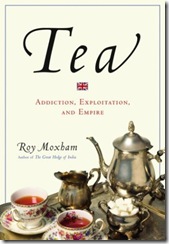
I’ve picked out a couple of extracts to share .. in that we can only recognize history and hope to do better.
Chapter 3, Victorian Enterprise – India - Page 126.
Most of the planters, however, were single. Some took mistresses, usually surreptitiously, for there was no prospect of such a woman being accepted in European society. Such a liaison would be invaluable for a new planter wanting to understand a totally new culture, and learn the language. These “sleeping dictionaries” were a feature of planting life, and were tolerated id discreet. After the Mutiny attitudes hardened – it was as if the British perception of attractiveness had shifted. Even so, George Barker’s views in A Planter’s Life in Assam might have been extreme – or perhaps not, as the book was issued by the leading publisher in Calcutta:
“Many years ago, the Burmese made an incursion and overran Assam, carrying off a large proportion of the female population. To judge by the intense ugliness of the present race, it is probable that the Burmese are men of taste, and selected only the beauties of the valley, leaving their plainer sisters to raise up a generation that is unsurpassed for hideousness.”
This contempt for the Assamese was matched by the contempt shown by many planters towards their imported labour.
Chapter 2, Keeping the Chinese in Order – page 51.
“The time is fast coming when we shall be obliged to strike another blow in China...These half-civilized Governments such as those in China, Portugal, Spanish America all require a dressing every eight or ten years to keep them in order. Their minds are too shallow to receive an impression that will last longer than some such period and warning is of little use. They care little for words and they must not only see the stick but actually feel it on their shoulders before they yield.”
29 September 1850.
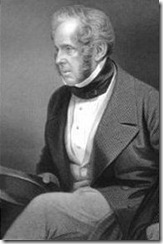
Lord Palmerston, British Foreign Secretary, 1846-1851.
Another nudge from the winds of change, this time it was a “Mistral” 
The Mistral is a fresh, often violent dry wind, blowing throughout the year but is most frequent in winter and spring. This nudge sparked more memories from History class.
The Battle of Beaune-la-Rolande on November 28, 1870 was a defeat for the French during the Franco-Prussian War.
But, the most prominent reflection was a little earlier, from 1812 (could this be an overture ???) This is one of the very best dispatch I have read .. I have plagiarized it and used it often. I only hope you enjoy it much as me, and think of having tea with your raspberry jam.
Accounting in the Peninsular War
MESSAGE FROM THE DUKE OF WELLINGTON TO THE BRITISH FOREIGN OFFICE IN LONDON -- written from Central Spain, August 1812
Gentlemen,
Whilst marching from Portugal to a position which commands the approach to Madrid and the French forces, my officers have been diligently complying with your requests which have been sent by H.M. ship from London to Lisbon and thence by dispatch to our headquarters.
We have enumerated our saddles, bridles, tents and tent poles, and all manner of sundry items for which His Majesty's Government holds me accountable. I have dispatched reports on the character, wit, and spleen of every officer. Each item and every farthing has been accounted for, with two regrettable exceptions for which I beg your indulgence.
Unfortunately the sum of one shilling and ninepence remains unaccounted for in one infantry battalion's petty cash and there has been a hideous confusion as the number of jars of raspberry jam issued to one cavalry regiment during a sandstorm in western Spain. This reprehensible carelessness may be related to the pressure of circumstance, since we are war with France, a fact which may come as a bit of a surprise to you gentlemen in Whitehall.
This brings me to my present purpose, which is to request elucidation of my instructions from His Majesty's Government so that I may better understand why I am dragging an army over these barren plains. I construe that perforce it must be one of two alternative duties, as given below. I shall pursue either one with the best of my ability, but I cannot do both:
1. To train an army of uniformed British clerks in Spain for the benefit of the accountants and copy-boys in London or perchance.
2. To see to it that the forces of Napoleon are driven out of Spain.
Your most obedient servant
Wellington


 Last weekend Heather, Kayaked / hiked Kauai’s North Shore, a two day adventure. Some 4,000 foot cliffs, very dramatic.
Last weekend Heather, Kayaked / hiked Kauai’s North Shore, a two day adventure. Some 4,000 foot cliffs, very dramatic.

 Just too HOT .. we called it quits ..
Just too HOT .. we called it quits .. Good news .. the weather has cooled off and I'll knock this off at the weekend.
Good news .. the weather has cooled off and I'll knock this off at the weekend. The Main Structure is complete: .. still working out the "shade cover"
The Main Structure is complete: .. still working out the "shade cover"  Trevor is working to update the transition from house deck to Pool deck
Trevor is working to update the transition from house deck to Pool deck






















